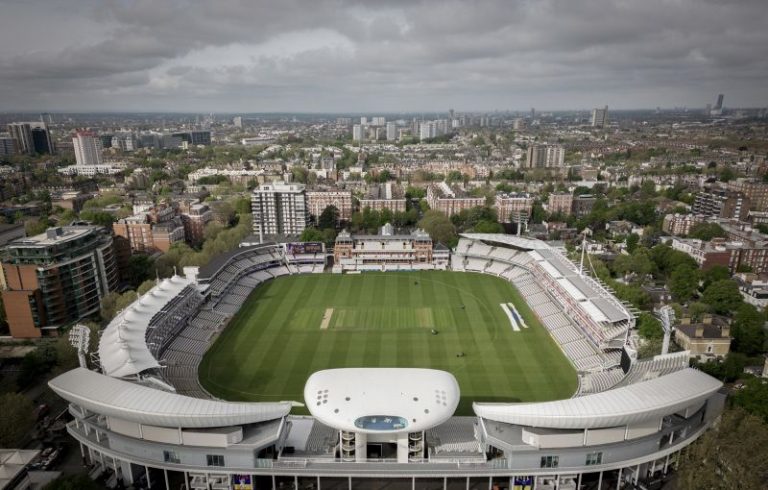An independent report into the culture of cricket in England and Wales has found racism, class-based discrimination, elitism and sexism to be “widespread” and “deep rooted” in the sport.
The “Holding a Mirror Up to Cricket” report was written by the Independent Commission for Equity in Cricket (ICEC) and received more than 4,400 responses to its call for evidence between oral and written submissions.
The ICEC was established in March 2021, after the England and Wales Cricket Board (ECB), the governing body for the sport in the country, announced its intention to investigate inequality and discrimination in cricket following “broad reactive introspection generated by the public outcry following the tragic murder of George Floyd,” according to ICEC chair Cindy Butts in a foreword to the report.
According to the report, 50% of those who responded experienced discrimination in the past five years playing cricket, with that number “substantially higher for people from ethnically diverse communities: 87% of people with Pakistani and Bangladeshi heritage, 82% of people with Indian heritage and 75% of all Black respondents.”
One unnamed former Asian cricketer details the discrimination he suffered in the findings, revealing teammates threw alcohol and bacon at him in acts of “abuse” and “hatred” – similar to those described by whistleblower Azeem Rafiq when giving evidence to the UK government’s Digital, Culture, Media and Sport Committee in November 2021.
Rafiq’s testimony “significantly increased” public interest in the commission’s work, according to Butts.
Rafiq contributed evidence to the commission, as did current and former England men’s Test captains Ben Stokes and Joe Root respectively. Current women’s captain Heather Knight also submitted evidence.
“Cricket has failed Black communities. … The decline in Black cricket in England and Wales has been well documented and subject to much public debate for many years. … We found it deeply concerning and surprising that we could identify no evidence of direct ECB-led activity to understand, halt or reverse this decline since the ECB’s formation in 1997,” said the report.
Regarding sexism, the report said: “Women are still seen as an ‘add on’ to the men’s game. Our evidence shows that women continue to be treated as subordinate to men,”
In addition, evidence heard by the ICEC points to “a widespread culture of sexism and misogyny, and unacceptable behavior towards women in both the recreational and professional game.”
The report said there was also “predatory behavior” from men towards women which is “often fuelled by alcohol.”
“I have experienced predatory behaviour [from] some men in cricket,” the report quotes one anonymous contributor, noting the men included “players, coaches, media, corporate executives, which may be when they drink or not although it feels more prevalent with alcohol.”
In the professional game, the inequity in pay between men and women is highlighted in the report.
“Women receive an embarrassingly small amount compared to men,” the report says. “The average salary for England Women is 20.6% of the average salary for England Men.”
Education and class are addressed in the report’s findings, which note that 58% of male players in England and Wales in 2021 were privately educated – far outstripping the 7% of the general population. The report describes a “prevalence of elitism and class-based discrimination in cricket” which is “structural and institutional in nature.”
The ECB should issue an “unqualified public apology,” according to the first of 44 recommendations from the report. “The apology should acknowledge that racism, sexism, elitism and class-based discrimination have existed, and still exist, in the game, and recognise the impact on victims of discrimination.
“It should include, in particular, a direct apology for the ECB’s and the wider game’s historic failures in relation to women’s and girls’ cricket and its failure to adequately support Black cricket in England and Wales.”
In response, the ECB chairman Richard Thompson said in a statement on the organization’s website: “On behalf of the ECB and wider leadership of the game, I apologise unreservedly to anyone who has ever been excluded from cricket or made to feel like they don’t belong.
“This report makes clear that historic structures and systems have failed to prevent discrimination, and highlights the pain and exclusion this has caused. I am determined that this wake-up call for cricket in England and Wales should not be wasted.”
Other ICEC recommendations include the creation of a triannual “State of Equity in Cricket” report to assess progress on the findings, and a stringent commitment to being “an anti-racist, anti-sexist and anti-classist organization.”
In response to the findings, Rafiq posted a statement saying: “I welcome the report’s findings and acknowledge the extraordinary work that has been put into this inquiry.
“There is no doubt now that the game we all love has suffered from institutional discrimination, including racism. The report is an opportunity to fully reflect on what happened and for the sport’s governing structures to work out a way forward to ensure that cricket is a game for everyone and that they feel supported, no matter their background.”

